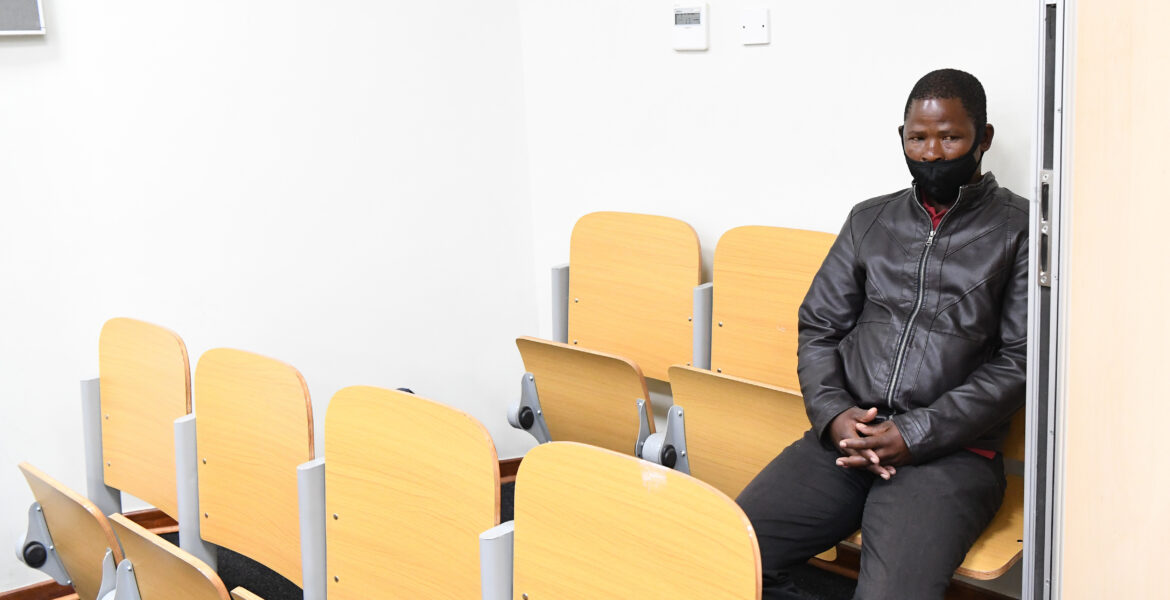The wave of condemnation of the government for denying people their rights “even in death” is whelming and is likely to rise further because calls for a legal defence fund are being made while lawyers are lining up to do pro bono work for the benefit of the First People of the Kalahari
GAZETTE REPORTERS
The Government of Botswana is facing massive public backlash from different sectors of society and civic movements after a High Court ruling on Thursday last week denied the burial of the body of an elderly MoSarwa in his ancestral land in the Central Kalahari Game Reserve (CKGR).
The ruling also ordered the mourning son of the deceased to bury his father outside the reserve or face 30 days in custody.
Mounting resistance and an appeal through his attorney Nelson Ramaotwana, the applicant Lesiame Pitseng has stated that he would rather be locked up than comply with Justice Itumeleng Segopolo’s court order from last week.
In a move that threatens to re-ignite longstanding tensions between the BaSarwa and the government, prominent lawyer Kgosi Ngakaagae is now appealing to members of the public to unite and “…stand against ethnic bigotry, and this unconscionable evil, by the state.”
In a widely shared social media post, Ngakaagae wrote: “We need to disabuse ourselves of the thinking that the CKGR is a game reserve. The CKGR is first and foremost a home for the inhabitants of the First People of our country. They are entitled to be buried there the same way I am entitled to be buried in Mahalapye, or Serowe. They are entitled to live there the same way I am entitled to live in the GaMmaNgwato area.”
“We need a reset of attitudes on this score. The arrogance of Batswana tribes (which run the government) is atrocious. It epitomises the worst expression of man’s inhumanity to man. One day, we will look at our handling of the CKGR issue and our treatment of fellow citizens (BaSarwa) with unforgivable shame.”
The government has persistently barred the family from burying the body of Pitseng Gaoberekwe to be buried in the CKGR, arguing that the deceased has no right to be interred there. However, according to the national identity card of the late Gaoberekwe that was issued by the government, he was born in Metseamanong, a hamlet inside the game reserve. The man’s body has been lying in a morgue in Gantsi for four months.
The state, through Advocate Sidney Pilane, argued that Gaoberekwe was not a beneficiary of the 2006 High Court judgment of Sesana and Others versus the Attorney General because he was not part of the 189 people who were litigants in the case.
BaSarwa rights activist Jumanda Gakelebone has criticized the government for its refusal to allow the burial of Gaoberekwe in the CKGR, saying the ruling is a violation of their indigenous rights. “Why should the government dictate where someone is buried? That should be the prerogative of the family, not the government. I am even more hurt by the order that someone should bury their father within a specific timeframe or face imprisonment.”
Gakelebone cited the 2006 landmark ruling in which the High Court ruled that BaSarwa residents in the CKGR had been forcibly and unconstitutionally removed from their ancestral land and have the right to return. He said to this day, the government does not recognise the order as many BaSarwa still live outside the CKGR.
Another BaSarwa human rights activist, Pako Ramasukujane, has condemned state attorney Pilane for his anbiguous statements on BaSarwa. Pilane wrote his social media: “Why do we continue treating BaSarwa as if they are objects of pity who deserve our charity? It is time we treated them as equals. There are other Batswana who are not Basarwa, who live around national parks and game reserves and who had to make way for national parks and game reserves.”
Another commentator, Mokgele Bine, called for contributions from members of the public into a legal fund to push against the government. Bine wrote on social media: “The government changed the name to CKGR in the early 1960s finding our grandparents there. By then the place was called Tc’aamnqoo and the government declared it a game reserve. This has long been our ancestral land, we are prejudiced because of our ethnicity and we are persecuted because we are nobodies before the eyes of this government. They only use us when it suits them during elections and afterwards they discard us.”
Speaking in an interview, the MP for Selibe-Phikwe West Dithapelo Keorapetse condemned the government’s “systematic injustices against the First People of the Kalahari”. The legislator noted: “I am also disappointed by our country’s civil society and political parties. Their voices are very faint, to say the least. They need to speak out against this injustice.”
His words were also echoed by the MP for Nkange, Dr Neva Tshabang. “I think the government must relax its stance regarding areas with ancestral linkages,” Tshabang said. “BaTlokwa bury their loved ones in their homes despite the policy on cemeteries. When is it right to admit ancestral linkages and right to deny them? This asymmetric application of laws and policies causes confusion.”
At Survival International, Research Director Fiona Watson said the ruling was a bitter blow for Pitseng’s family and a big setback for all BaSarwa who call the CKGR home. “The fact it ever got to court shows the government is once again intent on persecuting the CKGR Bushmen,” she said. “It is a staggeringly vindictive move to deny a person their rights even in death. Survival condemns the government and this misguided ruling and will do all it can to obtain justice for Pitseng’s family.”

